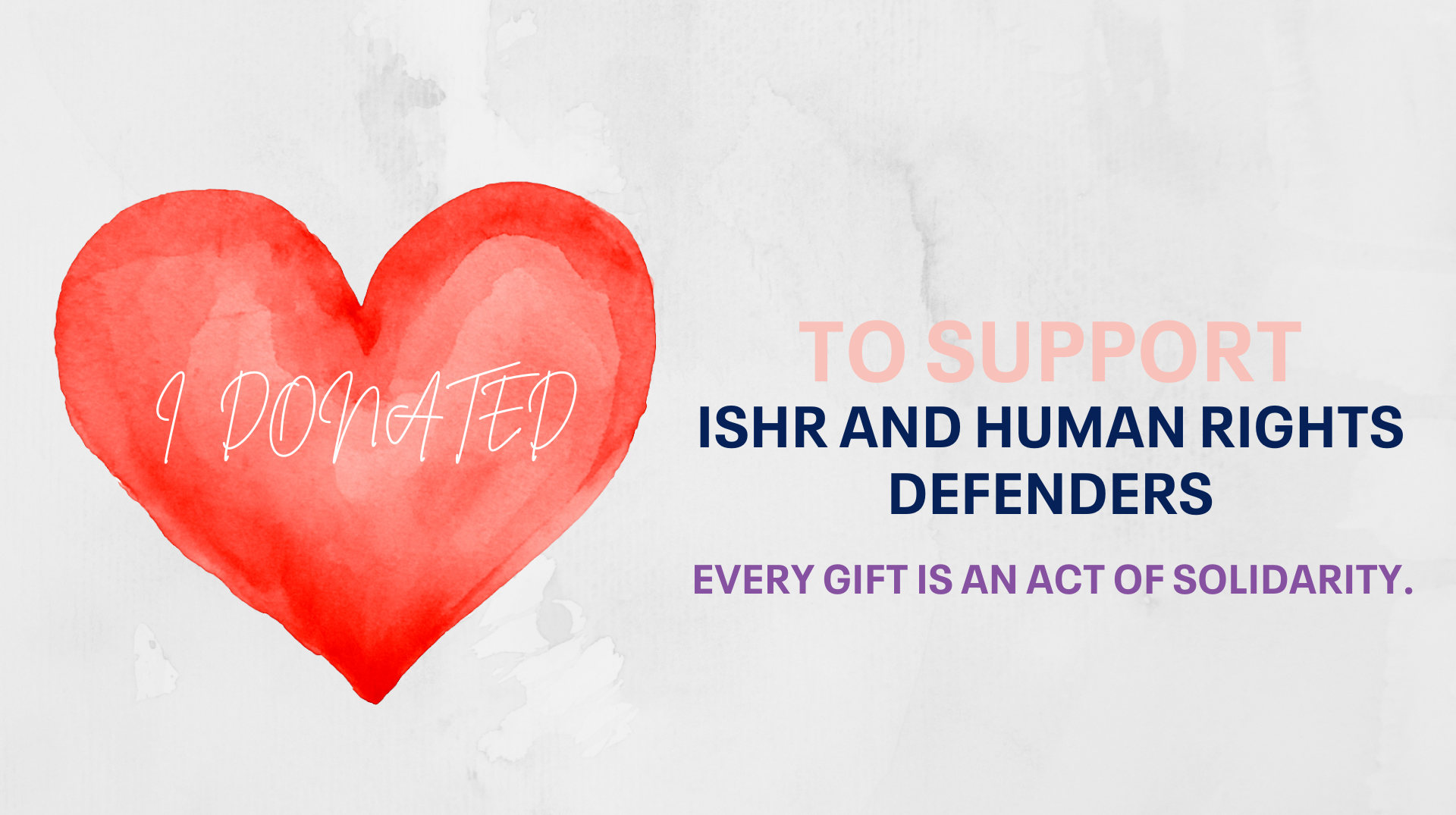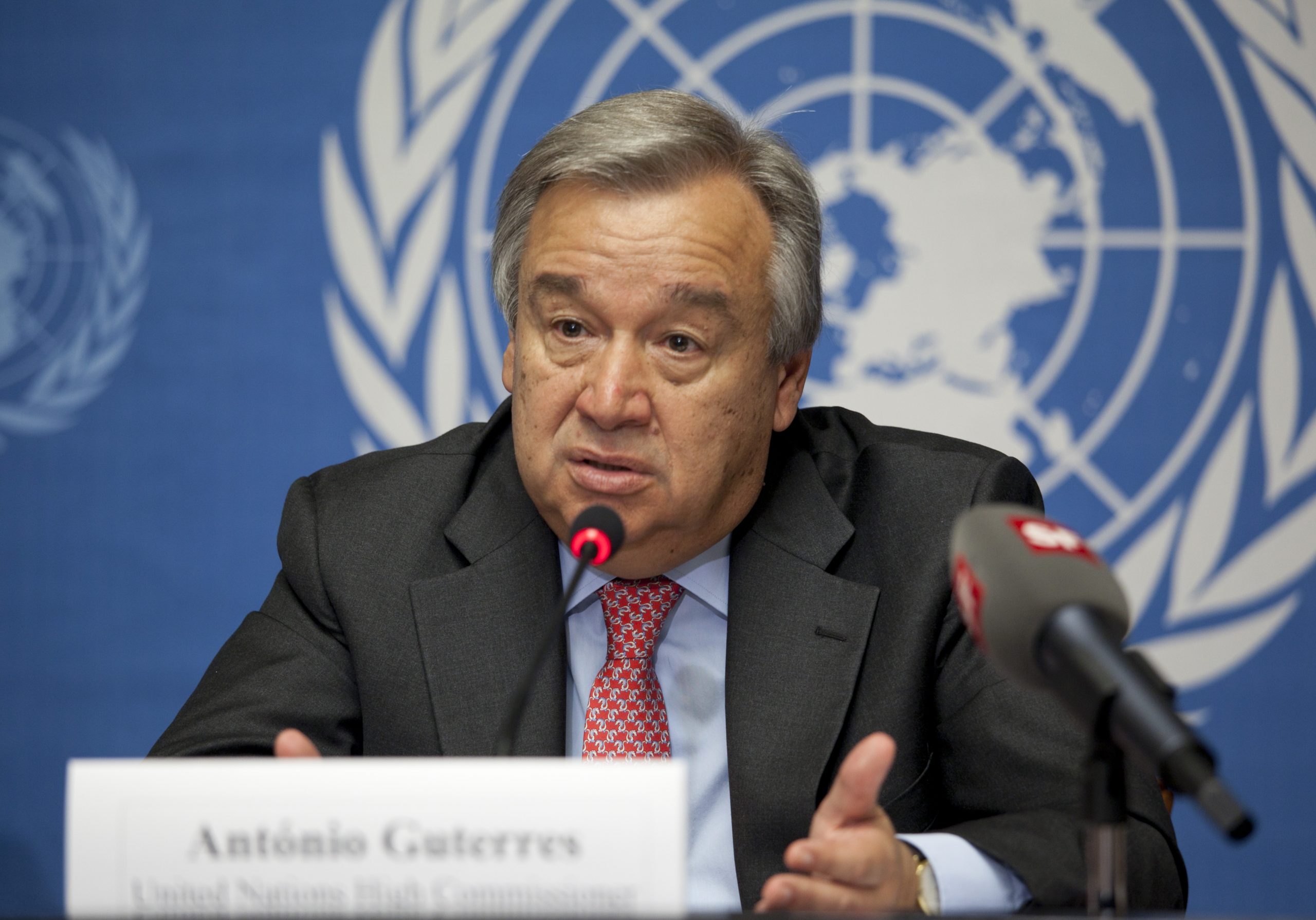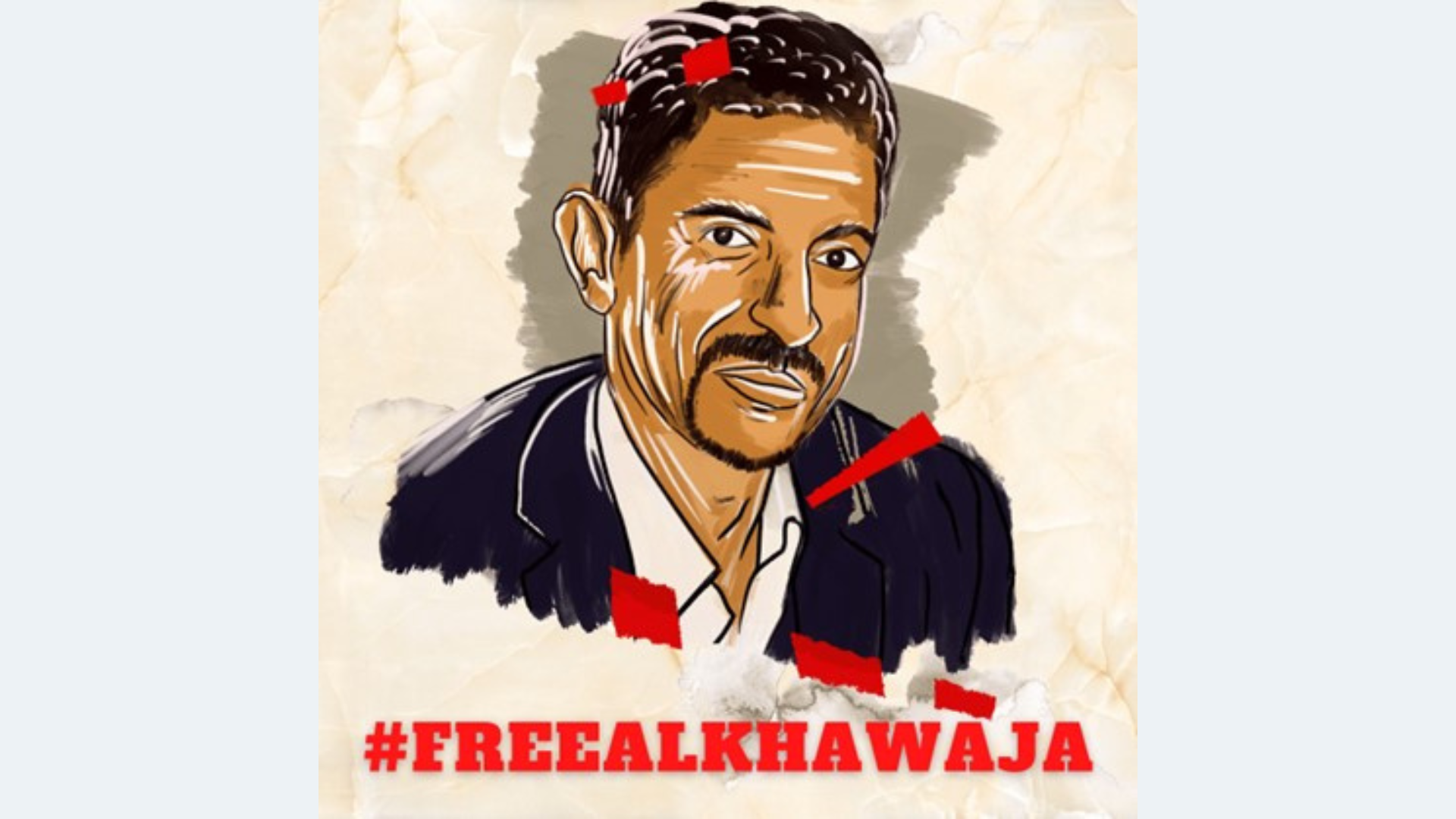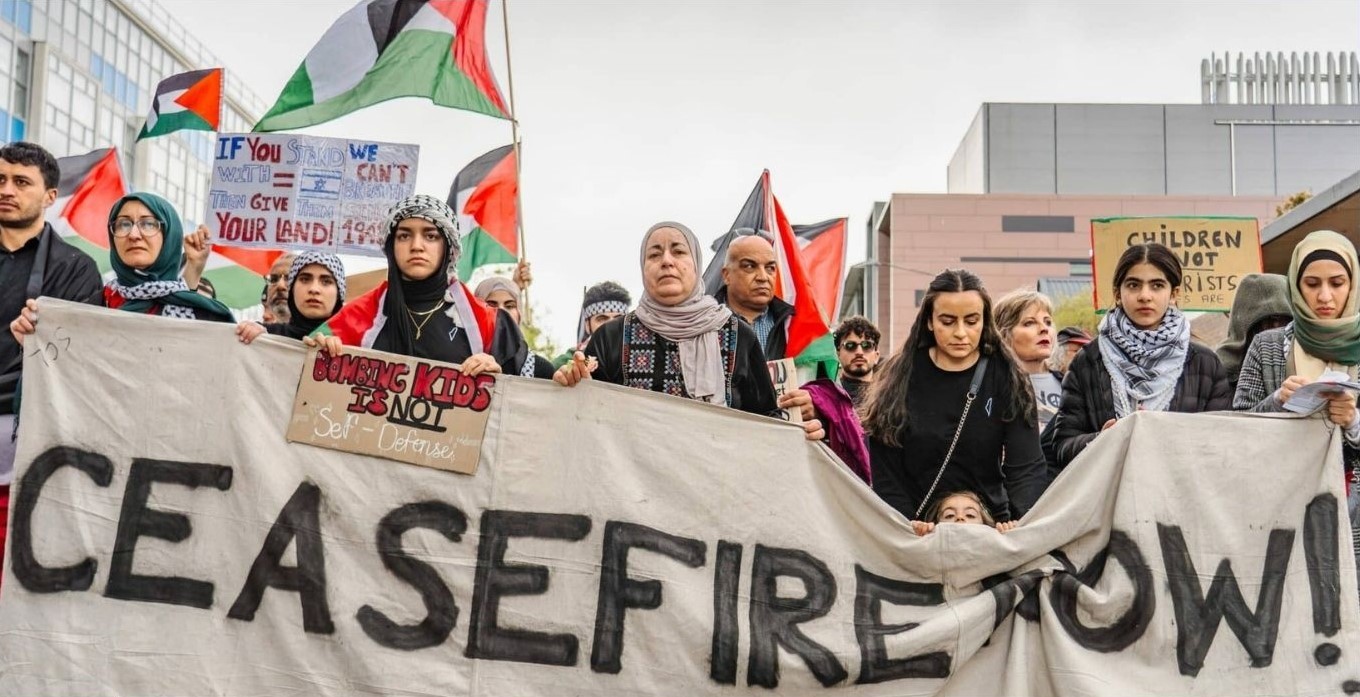
ISHR fundraising appeal donor board
A big thanks to everyone who is getting behind our fundraising appeal and investing in a better world by supporting human rights defenders!

Human rights defenders are indispensable to the UN’s work on the promotion and protection of human rights. A new UN report finds that defenders’ free and safe access to the UN should be a priority and core responsibility of the UN and more must be done to protect and promote defenders’ fundamental right to engage with international human rights bodies and mechanisms.
The Secretary-General has released his annual ‘Reprisals Report’, a public compilation of reported cases of intimidation and reprisals against those cooperating with the UN.
The Reprisals Report is an important contribution to the fight against impunity with regard to reprisals and intimidation. The Report offers no direct protection, but as a basis to publicise cases and call for accountability, it can serve a deterrent function. ‘Key to the Report’s potential is States utilizing it to call for accountability for perpetrators and effective remedies’, said Salma El Hosseiny, ISHR’s Human Rights Council Advocate. ‘One such opportunity will be during the presentation of the Reprisals Report at the September session of the Human Rights Council. Generic rhetoric is not enough. If States are truly committed to addressing intimidation and reprisals, they should speak out against the pervasive impunity and seize the opportunity to raise specific cases of reprisals.’ Another opportunity cited in the report is the Universal Periodic Review (UPR), which the Secretary General points encourages States to use further.
Other ways in which the Report could be leveraged to address impunity would be a complete record of cases and comprehensive assessment of trends as called for by the Special Procedures. In that same vein, the Secretary-General has called for all UN entities to help follow up and seek resolution on the large body of cases and to engage with States and partners to encourage examination and accountability. ‘Next year will be 30 years since the (now defunct) UN Commission on Human Rights first initiated the publication of an annual Reprisals Report. While the Reprisals Report is an important tool, the fact that it comes out merely once per year and is entirely static, means follow up is very inconsistent. Follow-up has gotten marginally better over the years with the inclusion of follow-up information in the Report but the truth is we have no idea what has happened to the hundreds of cases cited in the Report over the years. We have to ask ourselves whether their inclusion has achieved anything concrete?’, said El Hosseiny.
This year’s report includes cases from 47 countries, which amounts to nearly 25% of UN Member States. It includes 15 current Human Rights Council members[1] and four candidates for membership of the Human Rights Council.[2] ‘We consider committing reprisals to be plainly incompatible with Human Rights Council membership. We urge States in particular to raise attention to cases from Human Rights Council member and candidate states in the interactive dialogue, and refrain from voting for any State committing reprisals in the upcoming Human Rights Council elections.’
Cases in the Report include travel bans in Bahrain, Cuba, Djibouti, Egypt, India, Mauritania, Poland, Saudi Arabia, the United Arab Emirates (the UAE), Viet Nam, and Yemen; freezing of financial and other assets in Burundi, China and Nicaragua; and detention in China, Egypt, Guatemala, India, Iraq, Mauritania, Nicaragua, Poland, Saudi Arabia, South Sudan, Turkmenistan, the UAE, Viet Nam, Yemen, and Venezuela.
The Report is not comprehensive. Many incidents go unreported and others are excluded for security reasons and a concern for victims. In other situations, the reason for excluding cases is less clear. Some cases submitted by ISHR are notably absent, including the case from the United States concerning remarks made by the U.S. President’s National Security Adviser, Mr. John R. Bolton, and the US Secretary of State, Mike Pompeo. In that case, two Special Procedures mandate holders sent a communication to the United States expressing deep concern about the explicit threats against International Criminal Court (ICC) judges, prosecutors, and personnel, which violate the right to unhindered access to and communication with international bodies, and which may discourage human rights defenders, civil society organisations, victims’ representatives, companies or others from cooperating with the ICC.
Other notable cases submitted by ISHR that were not included in the Report are the cases of Jean Wyllys and Luciana Zaffalon, two Brazilian citizens who were intimidated by State officials on March 15th and 19th, 2019, during two side events held at the United Nations headquarters in Geneva and Vienna, respectively.
The Report cites a number of worrying trends including the misuse of online space through hate speech, cyberbullying and smear campaigns, the use of national security arguments and counter-terrorism strategies by States to block access to the UN, and the growing self-censorship by victims and civil society actors who decide not to engage with the UN out of fear or contexts where their human rights work is criminalized or publicly vilified. ‘The issue of self-censorship has been raised in general terms for years now. It is high time the Secretary-General developed a methodology and started meaningfully documenting these situations—otherwise we find ourselves in the perverse situation in which countries where intimidation is so great that UN engagement is virtually non-existent avoid the reach of the Reprisals Report’, said El Hosseiny.
In the coming weeks, Ghana, Fiji, Hungary, Ireland and Uruguay will present a draft resolution at the 42nd session of the Human Rights Council on cooperation with the UN. The draft resolution aims to strengthen the responses by the UN and States to put an end to acts of intimidation and reprisals. We urge all delegations to support the adoption of the draft resolution and resist any efforts to undermine and weaken it.
Photo: Wikimedia commons

A big thanks to everyone who is getting behind our fundraising appeal and investing in a better world by supporting human rights defenders!

The UN Committee against Torture (CAT) reviewed Bahrain’s fourth periodic report (CAT/C/BHR/4) during its 83rd session in Geneva in November 2025. The dialogue focused heavily on the situation of human rights defenders, torture, accountability, and conditions of detention. ISHR and partner organisations played a central role in ensuring that the Committee addressed the urgent cases of several detained defenders.

As the genocide in Gaza exposes deep corporate complicity, experts and human rights defenders convened in Geneva to discuss urgent paths toward accountability. This discussion unpacked how businesses, investors, and States must act now to end profiteering from atrocity crimes.